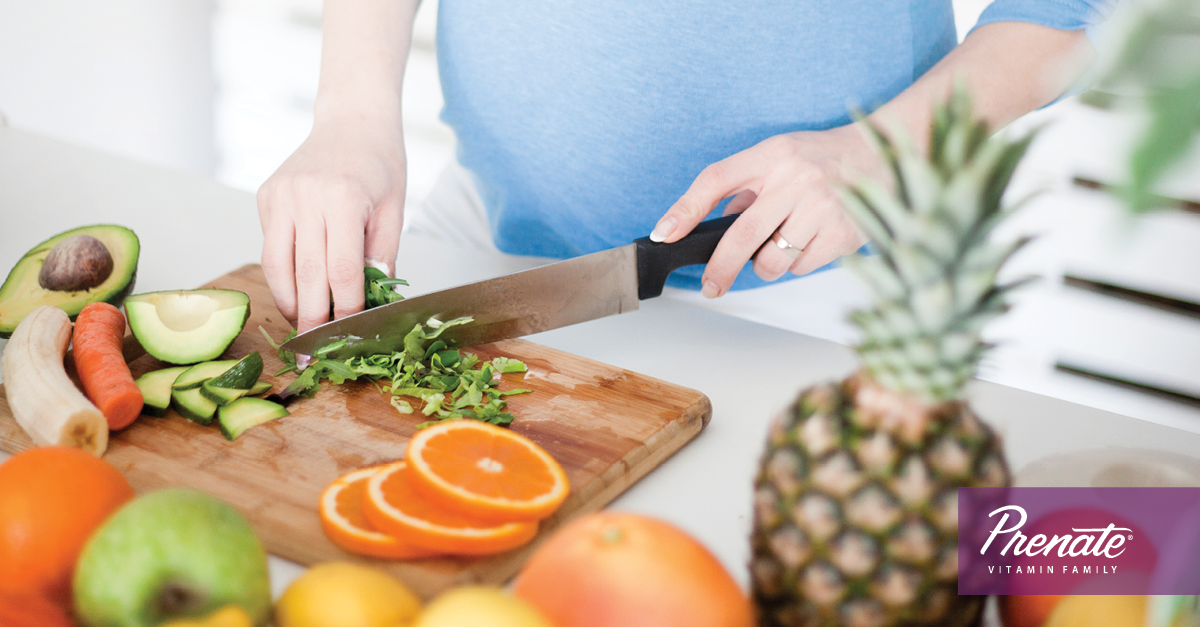Tips to Avoid Overeating During Pregnancy
May 17, 2018
The benefits of maintaining a healthy body weight throughout pregnancy are clear for moms and babies. When weight gain is in the healthy range, the rate of complications during pregnancy and delivery falls.
The Institute of Medicine recommends using your BMI (body mass index) and pre-pregnancy weight to determine how much weight you should gain during pregnancy.1 In general, women with a higher BMI have a lower recommended rate of weight gain throughout pregnancy.1
Many American women are overweight from the beginning of their pregnancy.1 Even so, staying within the recommended ranges of weight gain may reduce pregnancy complications like gestational diabetes.1
Exercise to Help Reduce Your Appetite
Exercising during pregnancy is a great stress reliever. It also helps you build the strength you’ll need for labor and delivery.2 Aim for 30 minutes each day of moderate exercise, as recommended by The American College of Obstetrics and Gynecology (ACOG). Talk with your doctor to determine a safe and effective amount of exercise for your situation.
To keep your energy levels steady during exercise, drink water and eat a small piece of fruit ahead of time. Another option for a pre-walk snack is a few crackers with all-fruit jam. You’ll enjoy the exercise more if you aren’t dehydrated and the fruit will give you an energy boost.3
Another benefit of exercise is that it may curb your hunger. Exercise may curb hunger by lowering levels of the hormone that increases appetite while raising the levels of the hormone that decreases appetite. If you were accustomed to intense workouts pre-pregnancy and you have the go-ahead from your doctor, more vigorous physical activity could help power up the hormonal combination you need to overcome pregnancy cravings.3
Exercising while pregnant shouldn’t be unpleasant. If you feel unusually fatigued during physical activity, talk to your doctor. You may be fighting a nutritional deficiency.
Focus on eating small meals
During your pregnancy, you’ll need to eat between 340 and 450 extra calories each day, depending on your weight gain goals. Try to eat a healthy snack every three hours. Protein will help you feel satisfied. Avoid a sugar rush and the inevitable crash, though. Processed sugar can cause mood swings and dramatic blood sugar changes that lead to overeating.
Pay Attention to Your Iron Levels
Anemia in pregnant women is common, and it could cause increased risk of infections and complications during delivery.4 It’s unknown whether anemia causes weight changes, but in one study, women who took an oral iron replacement to treat their anemia experienced a significant reduction in BMI and body weight.4
Symptoms of anemia include intolerance to cold, weakness, fatigue, dizziness, pale skin, and problems concentrating. In most cases, adding a supplement with iron, folic acid, and B vitamins raises iron levels in pregnant women. Foods such as eggs, kale, lentils, beans, red meat, and poultry are iron-rich and help support healthy iron levels during pregnancy.5
The National Institutes of Health (NIH) recommends that pregnant women get 27 mg of iron each day.6 Some women may find that certain types of iron supplements cause occasional digestive upset. The chelated iron in Prenate Mini® provides enhanced absorption with fewer side effects.7 Prenate Mini® contains chelated ferrous asparto glycinate, which is nearly three times more bioavailable than other forms of supplemental iron.7-9
Talk to your doctor to determine a healthy weight gain amount for your pregnancy and about whether Prenate Mini® is the right choice for you.
You Are About To Leave This Website
By clicking continue, this link will take you to a website to which Alora Pharmaceuticals Policies & Terms of Use do not apply. Alora and its subsidiaries do not control the content or accuracy of third-party websites and assume no responsibility for their use.











